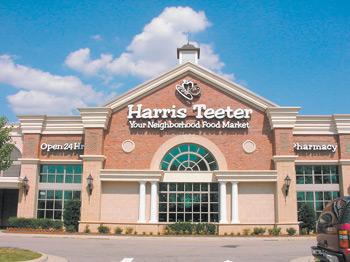 “This may be the last time we get together like this.”
“This may be the last time we get together like this.”
We hoped he was wrong. But my classmates and I knew that Charles Holland, the organizer of North Mecklenburg High School Class of 1958’s 60th reunion, might be right.
Time is closing in on us.
But what a time we have had. We have lived through historic times.
Most of us were born in 1940, about 78 years ago. If you went back 78 years before 1940, you would be in 1863.
So my classmates have had the privilege of living through more than one-half of post-Civil War American history.
It has been quite an era: The final stages of the Great Depression, Franklin D. Roosevelt, World War II, Pearl Harbor, Hitler, the Holocaust, Hiroshima, Korea, nuclear confrontation with the Soviet Union, Ike, Brown v. Board of Education, Sputnik, John F. Kennedy, Lyndon B. Johnson, Martin Luther King Jr., Richard Nixon, Watergate, man on the moon, Vietnam, civil rights, women’s rights, sexual revolution, miracle medicine, drugs, Ronald Reagan, two Bushes, Clintons, gay rights, computers, Berlin Wall falls, Middle East terrorism, Twin Towers, Iran, Iraq, Afghanistan, Obama, the rise of China, iPhones, Facebook, Twitter and a president who tweets. We could not mention the president’s name at the reunion because politics was a forbidden topic.
Closer to where we grew up in northern Mecklenburg County, the nearby textile and furniture mills that employed some of our parents are gone. Our families shopped at stores owned by Mr. W.T. Harris and Mr. Willis Teeter before they joined forces. Now, Harris-Teeter has been sold to Kroger. The local Lance cracker factory most of us visited as students recently became Snyder-Lance, which earlier this year sold itself to Campbell Soups.
The neighborly power company and one of our local banks have become giant conglomerates, Duke Energy and Bank of America.
Our nearby big town, Charlotte, and the welcoming places we loved to visit are gone. In their place is a bustling worldclass city with professional sports teams, direct international flights and hundreds of thousands of new neighbors who jam the highways every time we come back to visit.
That growth transformed the lazy banks of the Catawba River, where we swam and sunbathed, into Lake Norman. It turned the small farms and dairies, where some of us grew up or worked in the summer, into a university campus, residential and commercial developments and country clubs.
In 1958, North High, with about 600 students, serviced the small communities of Derita, Long Creek, Huntersville, Cornelius, Davidson and Mallard Creek. Today’s North High has about 3,000 students. Not counting private, charter and religious sponsored schools, it takes four additional public high schools to serve this area: Hopewell, Mallard Creek, Zebulon B. Vance and a high school named after the Class of 1958’s North High principal, William A. Hough.
At the reunion, there was an elephant in the room.
Charles Holland brought it up gently. “I thought we would sing our old fight song.” He then reminded us how it went. “Rah, rah, those Rebels.”
In 1958, notwithstanding Brown v. Board, North was an all-white school, totally segregated like most other schools in our region. In addition to the Rebel nickname, our fans waved Rebel flags.
When black students enrolled at North, things changed quickly. The Rebels became the Vikings. The Rebel flag disappeared.
Is the 60th our last? I bet not.
Although in 1940 the projected average lifespan for someone born that year was 63 years, it has gotten better. Today, people our age are projected to live an average of about 10 additional years. That is plenty of time for lots more good living. It gives me hope that more than a few of us will be back for our 70th reunion.